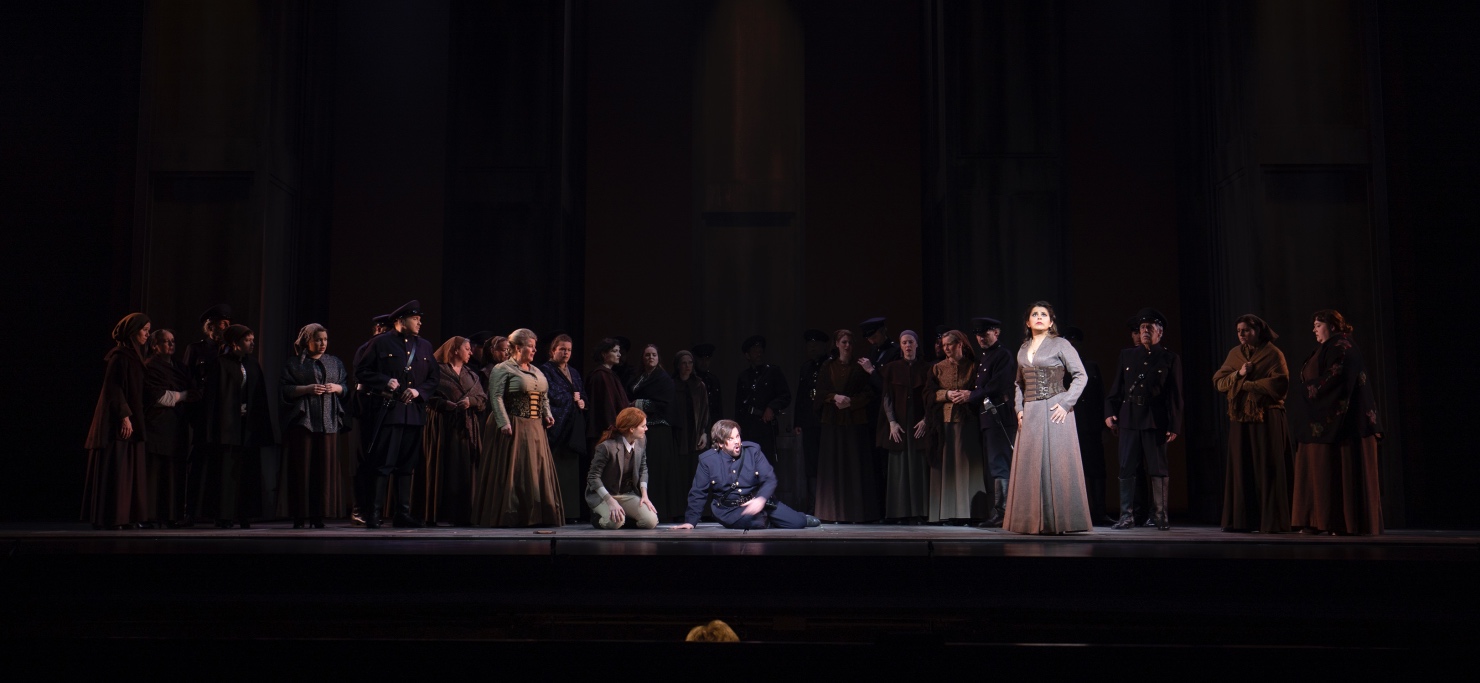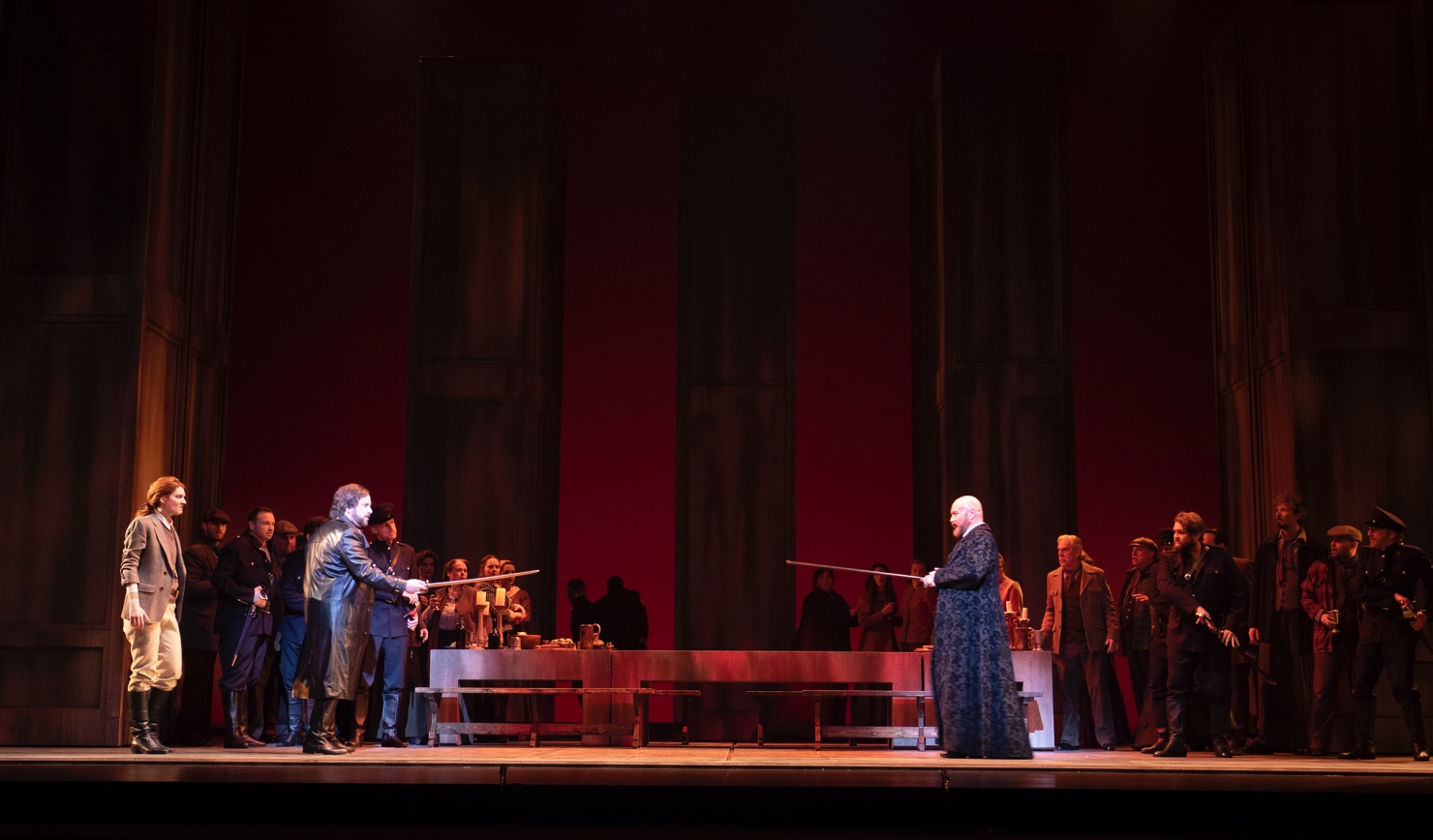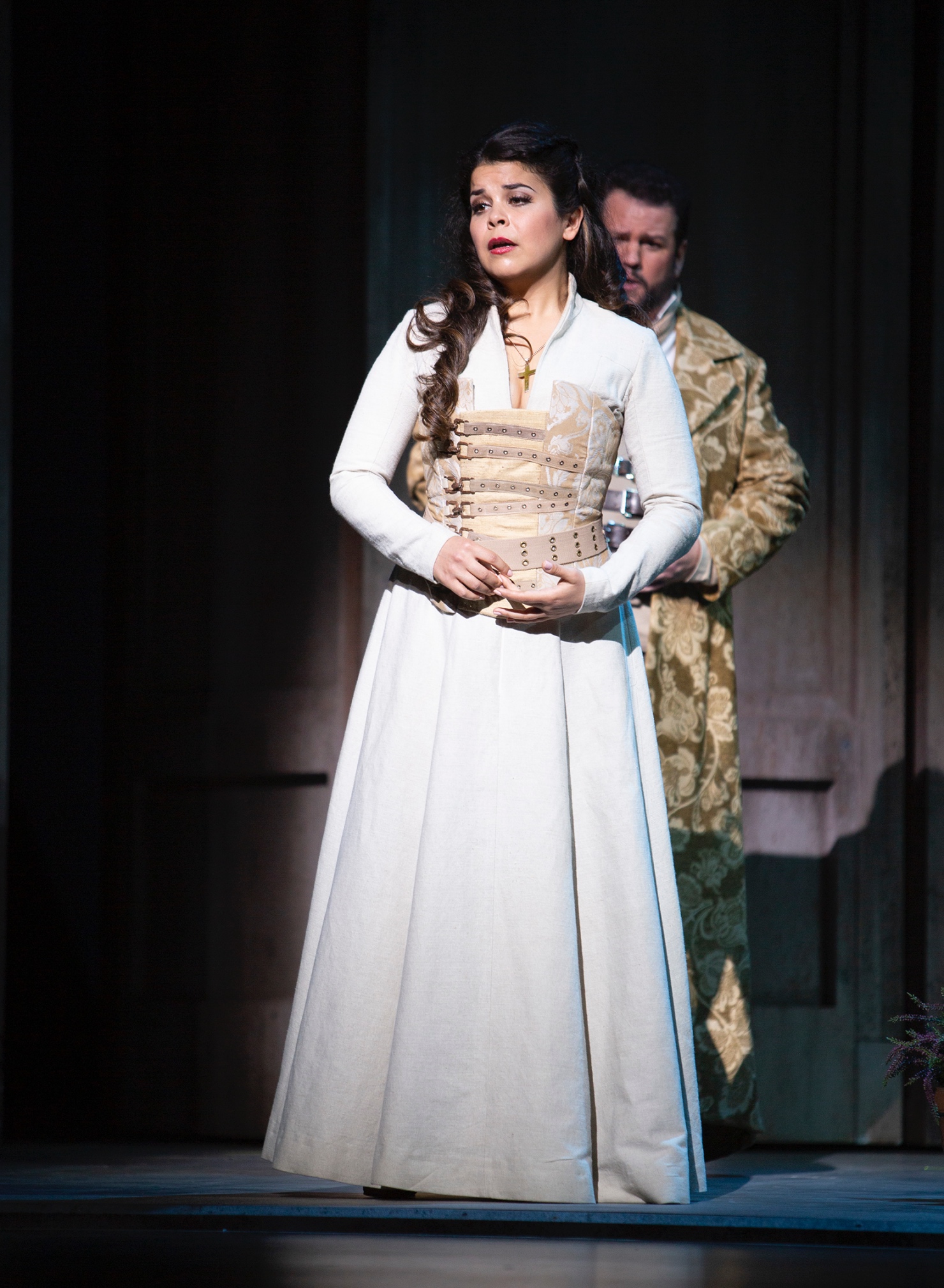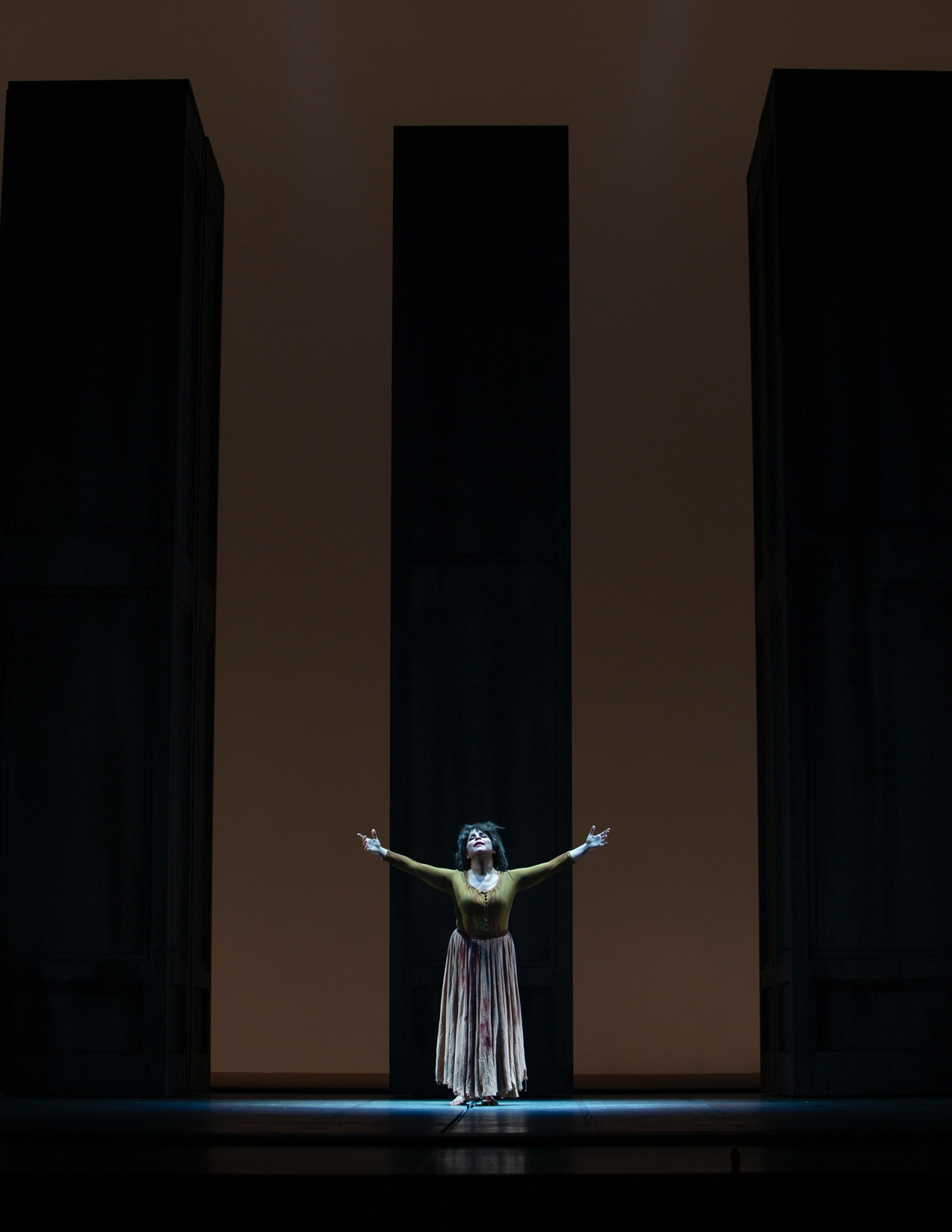
Pomakov a dominating devil in Vancouver Opera's Faust
ReviewVancouver Opera’s Festival mainstage feature is Gounod’s Faust, the tragic story of the man who sells his soul to the devil for youth and love.
In this production, borrowed from Montreal, the set is stark and austere, with floor-to-ceiling columns that form the scenery as they move to make the different settings of each act. They’re visually striking, and give the entire settling a feeling of darkness, and being closed in, which adds to the tension of the drama.

David Pomeroy as Faust opens the show as an old man cynically awaiting his death and calling on the devil, who gladly appears to offer Faust his help, in exchange for Faust’s service in hell. Pomeroy was equally convincing as the bitter old man, and as the young man in love. Pomeroy’s bright tenor and brilliant tone was very powerful with high notes that brought the audience to their feet. His transformation in Act I from the old man to the young man was a brilliant piece of stage magic, and executed seamlessly.
The role of the devil Méphistophélès was played by bass Robert Pomakov who positively dominated the stage from the moment of his arrival. He delivered an absolute powerhouse of a performance throughout. Vocally, his sound was rich and full, and rang effortlessly to the back of the house. As the devil, he commanded attention and draws the audience into his seductive power. This is Pomakov’s debut at VO and in this role, and I hope this becomes a staple of his repertoire.

Simone Osborne as Marguerite embodied the sweetness and innocence that Faust was longing to recapture. Her descent into madness was tragic, in particular her moment of pounding her fists against her head while awaiting her death was terrifying and sad. Osborne has a beautiful, clear soprano, but was occasionally difficult to hear in the ensembles or over the orchestra.
Mezzo-soprano Mireille Lebel was a charming Siebel, portraying the besotted youth as an awkward, befuddled boy with consummate skill. Watching Siebel prepare for Marguerite’s arrival by trying to look seductive in his gawky, bumbling way was incredibly funny, and paired with Lebel’s bright and rich mezzo, she brought the character to life and made him genuine and sympathetic.

The men’s chorus in Act IV was a highlight, with a powerhouse chorus of voices that was a pleasure to watch. Jonathan Darlington conducting the VO orchestra brought great sensitivity to a difficult and dynamic score.
The austere, dark sets and costuming were paired with relatively austere stage direction from François Racine. While the intention may have been to let the music speak for itself, in this case it seemed to slow the pace of the show, and gave the performers little to do on stage.

Lighting designer Alan Brodie brought beautiful touches to every scene, from the back lighting at Méphistophélès’ entrance that lit up half of the audience with his silhouette, to the side lighting that cuts off Marguerite in her prison cell, it was visually striking and subtle, underscoring the feeling of each scene brilliantly.


Comments